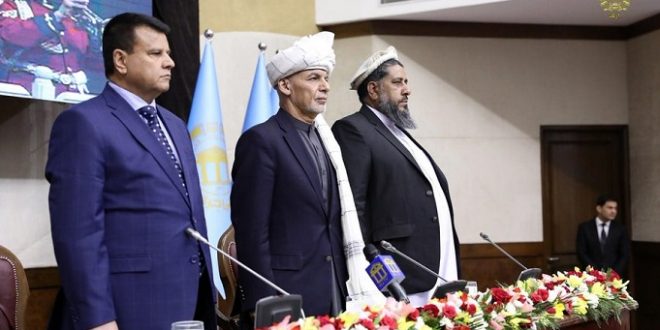AT News
KABUL: President Ashraf Ghani is accused of selective treatment by some former cabinet members, saying that he was acting as “King” in the cabinet meetings.
President Ghani and his top 2014 presidential election rival, Dr. Abdullah Abdullah formed a National Unity Government to reach a political deal over power-sharing. The cabinet was shared by Ghani and Abdullah 50-50 percent. Again in 2018 election both Ghani and Abdullah rejected results even both sworn-in as new Presidents of Afghanistan in their palaces next to each other. Finally they signed another power-sharing deal in 2019 where both hold 50 percent power.
The NUG engaged turned into a new political hotspot for Ghani and Abdullah. Ghani purportedly treating the ministers unequally as half of the cabinet was shared by Abdullah.
Some former cabinet members said that “sometimes” the ministers were not even aware of their appointments and dismissal.
“One day, one of the ministers was swimming at a pool while he heard from his friend that he was selected as minister by the Presidential Palace,” a source said, who was talking on condition of anonymity.
The former officials said that Ghani was initially treating the cabinet with good manners but he became aggressive overtime, mostly with those cabinet members that he didn’t like personally, perhaps appointed by Abdullah.
The scheme was important for Ghani, said a former minister, adding that the president cared about the individuals and “personal issues”. “If the official was appointed by Abdullah, his plan would be rejected,” he added.
But Sayed Anwar Sadat who worked as minister and governor for Ghani’s administration denied the allegations. “A logical scheme was approved by the majority votes in the cabinet and some other plans were rejected due to technical problems. He called Ghani’s stand regarding the cabinet fruitful and instructive.
One of the ministers appointed by Abdullah said that Ghani was taking a longtime to sign the proposal. “Ghani was not supporting the schemes – he was denying it over and over – sometimes an important scheme had taken years to get signed by the president,” the minister said. “If he had a plan in mind, he would implement it despite all the problems.”
Another minister said that Ghani was criticizing a lengthy-writing proposal because he didn’t want to read. “He was behaving in a way that the ministers regretted offering a plan for him,” he added.
But another member, Laluddin Aryoubi suggested that Ghani was considering the technical and practical sides of the plan. “He had been adding his own ideas on the plans,” Aryoubi added.
But another minister said that Ghani did not accept the ministers’ plans as he considered himself educated.
He said that President Ghani wanted to be respected as a “scholar but acted like king.”
This comes as the acting ministerial process has once again become under criticism by the parliament.
He has recently fired Masood Andrabi, the minister of interior affairs, appointing Hayatullah Hayat as the acting in charge of the ministry.
Currently, seven ministries are administered by acting ministers. Some members of the parliament called on the government to introduce new ministers for a vote of confidence from the parliament. The lawmakers emphasized on end to the acting ministerial process, calling it as against the constitution.
 Afghanistan Times
Afghanistan Times




